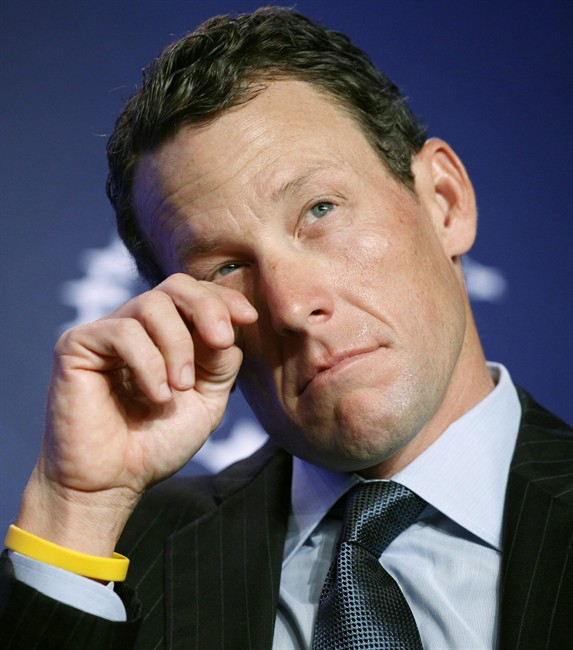LONDON – British newspaper The Sunday Times has reached a settlement with Lance Armstrong after suing the disgraced cyclist to recover damages from a libel settlement.

The paper paid Armstrong 300,000 pounds (now about $470,000) in 2006 to settle a case after printing claims that he took performance-enhancing drugs.
But confirmation that Armstrong led a massive doping program on his teams came last year from a U.S. Anti-Doping Agency report, prompting a confession by the American, who was stripped of his seven Tour de France titles.
The Sunday Times announced it was suing Armstrong for around 1 million pounds ($1.6 million) to reclaim the 2006 settlement payment plus interest and legal costs.
In Sunday’s editions, the paper said it and the article’s authors had reached a “mutually acceptable final resolution” with Armstrong, but said the terms are confidential.
It was The Sunday Times chief sports writer David Walsh’s co-authored book, “LA Confidential,” that detailed Armstrong’s role in cycling’s doping culture and was serialized by his paper in 2004.



Comments